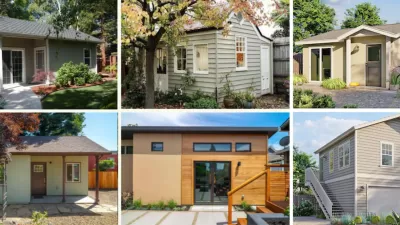Aging in place means fewer homes for young homebuyers, according to a new report by Redfin.

"Americans are staying in their homes much longer than before, creating a logjam of housing inventory off the market that helps explain why home sales have been sputtering," reports Laura Kusisto in a paywalled article for the Wall Street Journal.
Kusisto is sharing news about the findings of a recent analysis by Redfine, which is also published online. The report finds that the typical U.S. homeowner stays in their homes for 13 years, five more years than reported in 2010.
"In Salt Lake City, Houston, Fort Worth, San Antonio, and Dallas homeowners have been in their homes the longest, with typical homeowners in those metros staying in their homes over eight years longer than they did in 2010," according to an article by Daryl Fairweather on the Redfin website. "In many metros that has led to fewer homes available for first-time homebuyers."
Fairweather also lists a comparison of median home tenure in 2010 and 2019 for all 55 metros included in the Redfin analysis. Home tenure increased in all 55 metros, in cities as disparate as Salt lake City, Baltimore, Fort Worth, and Oakland, California.
The list also provides information about the number of homes for sale and median sale prices. Thus, both Refin and Kusisto present the findings of the report with a narrative that complicates thinking about the "aging in place" approach to senior housing, by connecting aging in place with rising housing costs. Fairweather uses San Francisco as a case study of a city where homeowners are staying in place longer than in previous decades, there are fewer homes for sale, and the homes that are for sale are much more expensive.

Planetizen Federal Action Tracker
A weekly monitor of how Trump’s orders and actions are impacting planners and planning in America.

Chicago’s Ghost Rails
Just beneath the surface of the modern city lie the remnants of its expansive early 20th-century streetcar system.

San Antonio and Austin are Fusing Into one Massive Megaregion
The region spanning the two central Texas cities is growing fast, posing challenges for local infrastructure and water supplies.

Since Zion's Shuttles Went Electric “The Smog is Gone”
Visitors to Zion National Park can enjoy the canyon via the nation’s first fully electric park shuttle system.

Trump Distributing DOT Safety Funds at 1/10 Rate of Biden
Funds for Safe Streets and other transportation safety and equity programs are being held up by administrative reviews and conflicts with the Trump administration’s priorities.

German Cities Subsidize Taxis for Women Amid Wave of Violence
Free or low-cost taxi rides can help women navigate cities more safely, but critics say the programs don't address the root causes of violence against women.
Urban Design for Planners 1: Software Tools
This six-course series explores essential urban design concepts using open source software and equips planners with the tools they need to participate fully in the urban design process.
Planning for Universal Design
Learn the tools for implementing Universal Design in planning regulations.
planning NEXT
Appalachian Highlands Housing Partners
Mpact (founded as Rail~Volution)
City of Camden Redevelopment Agency
City of Astoria
City of Portland
City of Laramie





























